How to talk about Covid-19: insights from the British public
How should international NGOs connect with the current public mindset?
New research from the Development Engagement Lab (DEL) sheds light on the British public’s receptivity to development cooperation in the context of the global coronavirus pandemic.
Do the public recognise the need for a global response?
Here’s the good news: In a recent survey designed by the Development Engagement Lab and conducted in April 2020 by YouGov, the public in Great Britain reported overwhelmingly that tackling the pandemic requires a global response.
In fact, 79% said that global cooperation is now “more important than ever”. More than that, two-thirds of the British public also said they would “feel safer” as part of a coordinated, global response to the pandemic.
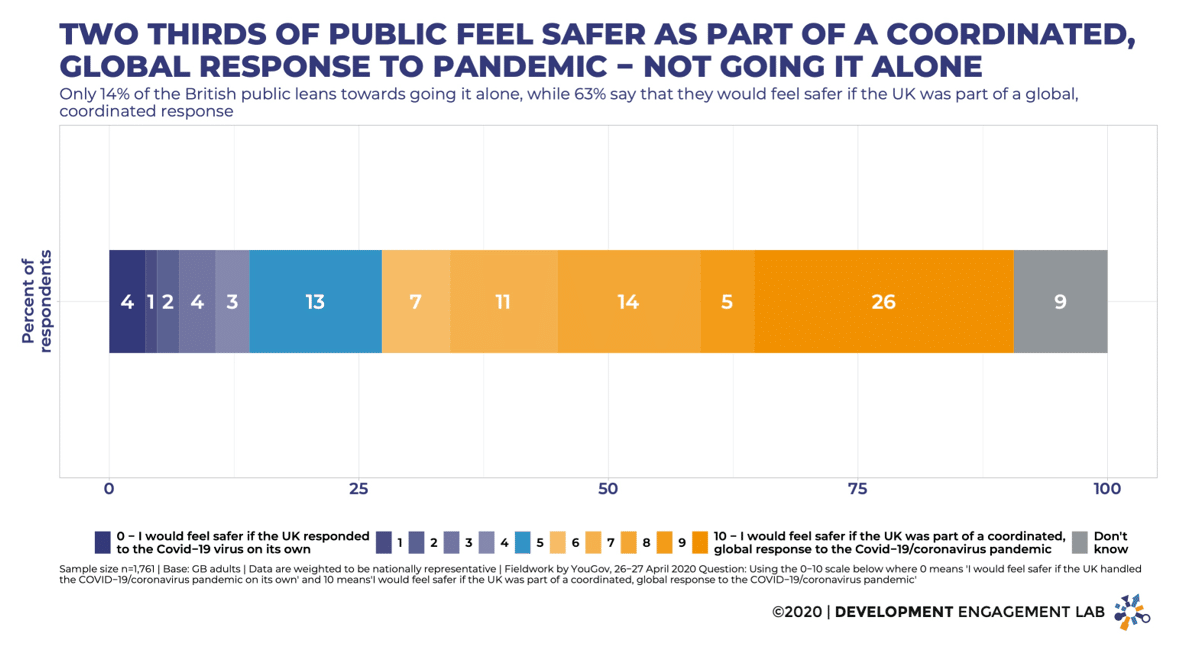
So, what’s the catch? Unfortunately, in the same survey, support for increasing the UK aid budget declined slightly compared with January 2020, when 42% said they would increase or maintain the current aid budget. In April 2020, that number dropped to 38%.
Without more information, it’s difficult to explain why the public’s call for greater cooperation did not translate to a desire to increase or even maintain the aid budget. It’s possible that as the realities set in of the global economic and social impact of Covid-19, the public may begin to understand that increasing global cooperation requires an increase in funding. It could be they might advocate for using the budget better, or differently.
It could also be that people need to see a case from the sector for why that much-needed global cooperation requires equal or greater public investment.
How should funds be spent overseas to tackle Covid-19?
Not unsurprisingly, when offered a list of interventions and asked how donor countries and international organisations should help, respondents ranked vaccines first. Surprisingly, water and sanitation was the second highest-priority, followed by medical equipment and health systems.
The interest in water and sanitation surprised us the most. This raised questions about whether domestic priorities – likely the result of widespread publicity and messaging around hand-washing – may also prompt global public priorities.
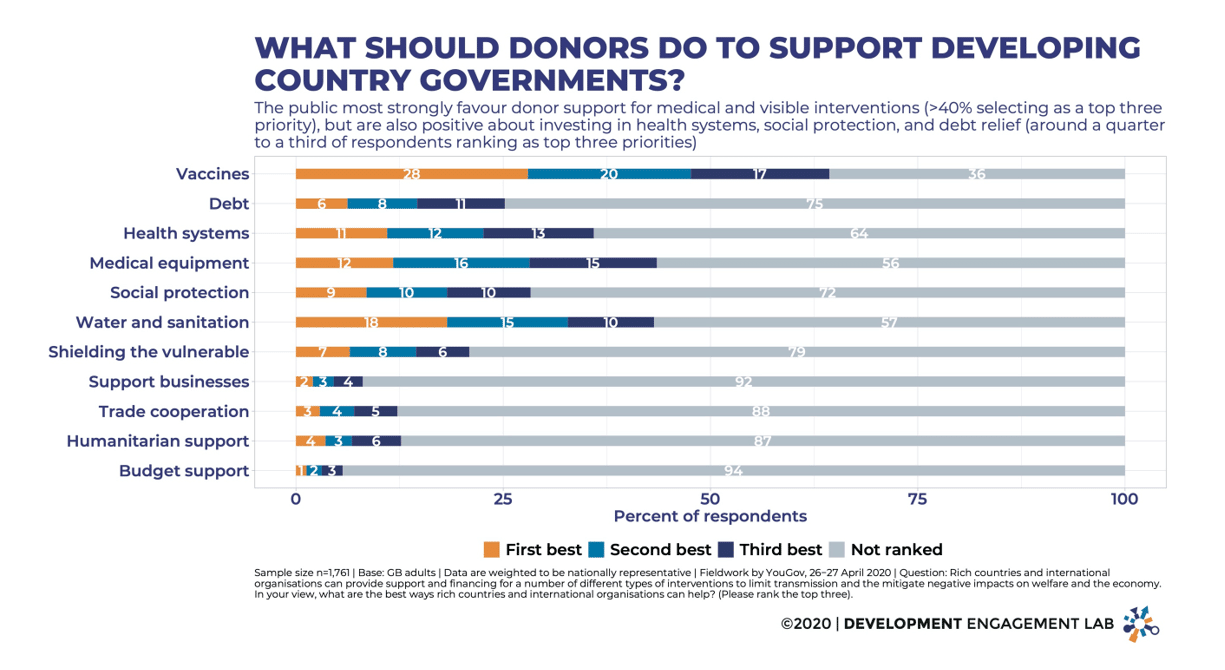
Engaging the public on coronavirus
As part of our Covid-19 research, we also tested more than a hundred messages to understand how the public perceives outreach that emphasises the connections between the pandemic and other global crises and challenges.
Subscribe to our newsletter
Our weekly email newsletter, Network News, is an indispensable weekly digest of the latest updates on funding, jobs, resources, news and learning opportunities in the international development sector.
Get Network NewsWhat we found was an overwhelmingly positive response to messages that stress a need for collective action. For example, our top performing message was, “I want our government to work with other governments to ensure scientists have the funding they need to find the treatments and vaccines that can help end this crisis.” This message was selected by 79% of the time by respondents against other competing messages.
Other well-scoring message were:
- “The only way to stop the coronavirus crisis is to test, treat and prevent future infections with a vaccine − we need to support the world’s scientists to do that.”
- “We need a global response to a global problem. We’re all in this together.”
- “It is in everyone’s interest to stop the virus from spreading unchecked, destroying lives and economies, and continuing to circle around the world.”
The top-performing messages consistently reflect a call to action to support, join, or unite in the shared challenge presented by the pandemic. Messages in which one country or actor is leading performed less remarkably. Even messages that frame the national interest argument for providing aid overseas received a lukewarm response. For example, “This crisis shows that that every country is best protected by protecting people everywhere”, was only selected by respondents 51% of the time.
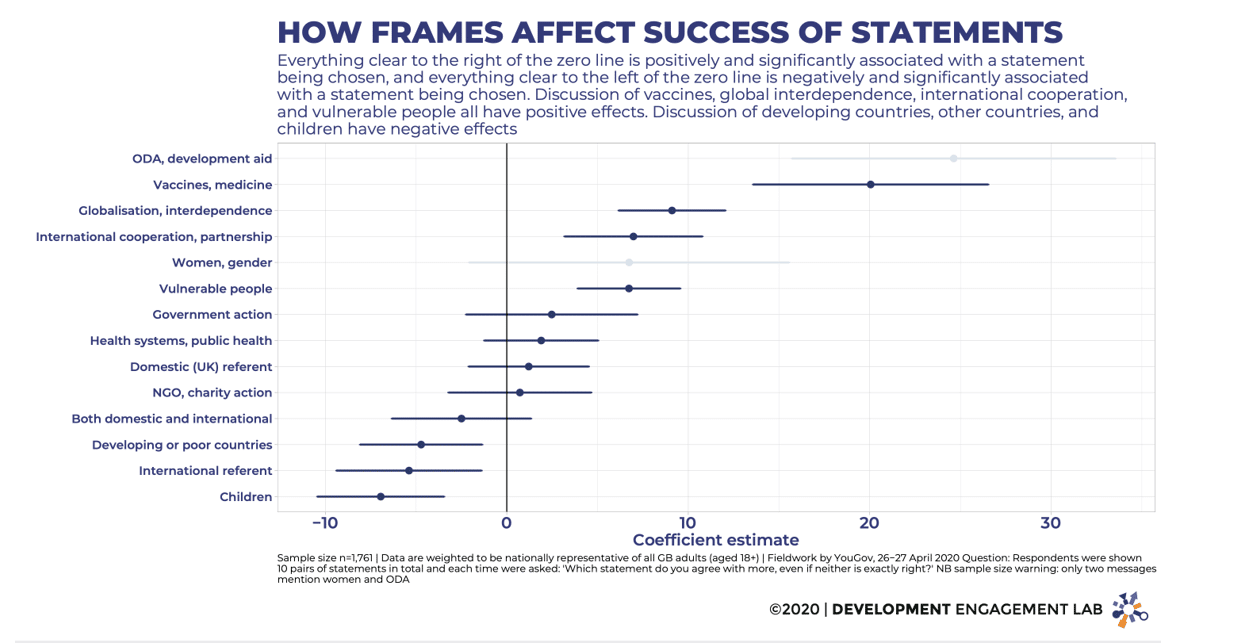
There were also surprises among middling and low performing messages, some of which are difficult to explain. “Covid-19 is impacting women and girls the most as they are the most likely to shoulder the caring burden and work in unstable jobs,” was chosen only 21% of the time. Another, “In Syria, children are already vulnerable and healthcare systems are struggling to cope. The impact of a coronavirus outbreak would be catastrophic,” was chosen only 52% of the time.
Again, it’s difficult to guess why these and other messages highlighting the pandemic’s impact on vulnerable groups scored less well. It’s possible that when the survey was conducted in late April – as the UK death toll continued to rise and shortages of tests and PPE became bleakly apparent – the public were too immersed in the current Covid threat to think about future risks, regardless of how potentially devastating.
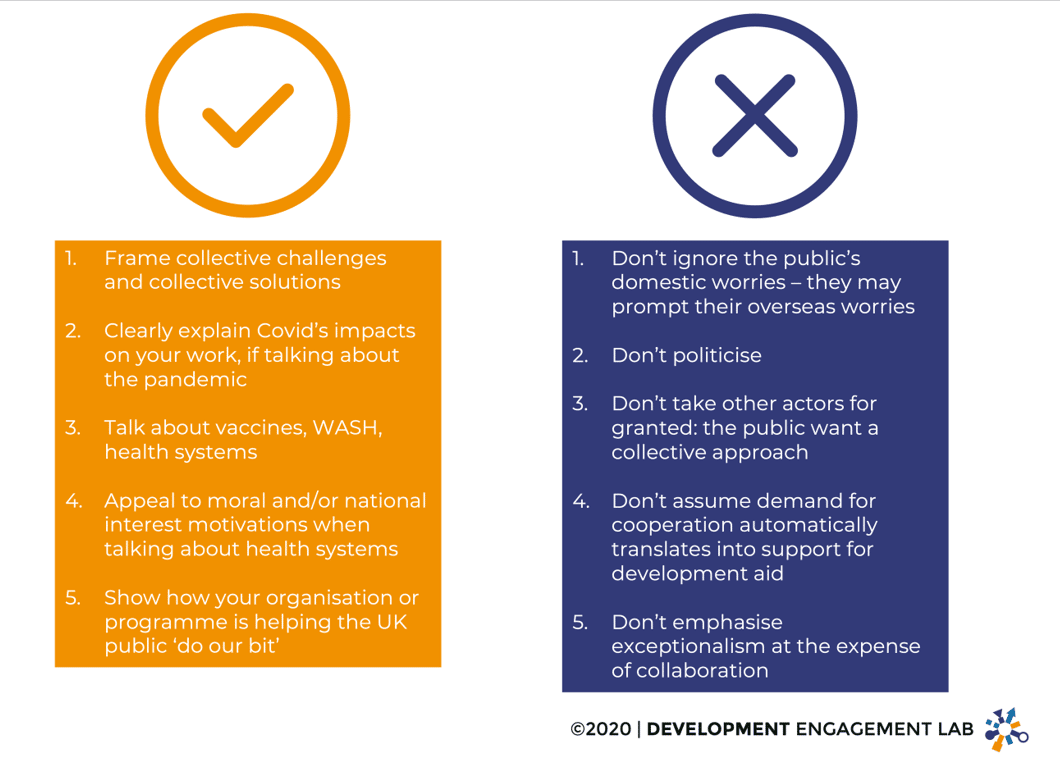
Still, the public response is clear: messaging and outreach which emphasises the need for a collective approach, and for “everyone to play their part” is resonating with the British public. 82% of respondents agree or strongly agree with the statement: “UK should do our bit as part of a global movement.”
Finally, the strong response (72%) to the claim that “big international organisations” are also critical to this effort should serve as a sturdy mandate for the international development sector.
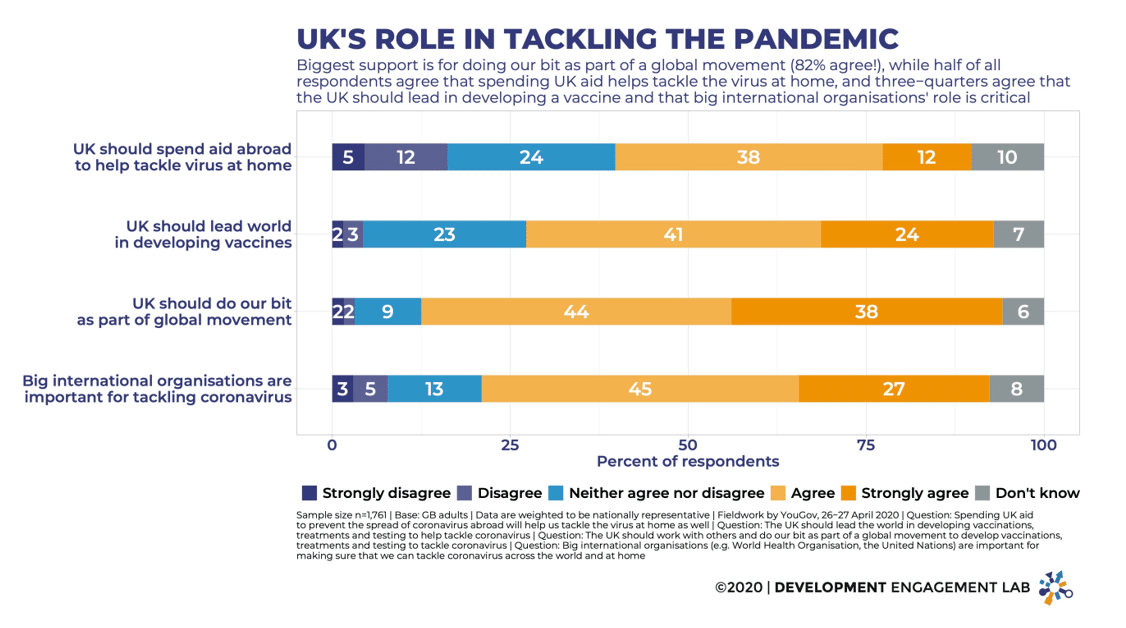
A shifting landscape
The public are still learning about the impact this pandemic will have on their lives, and so it’s safe to assume the public’s understanding of the needs of developing countries and vulnerable groups overseas is still evolving. The research offered here only reflects a single moment in time, which is why we at DEL will continue to monitor public sentiment toward aid and development during and in the wake of the pandemic.
What seems less likely to change in the coming months, however, is the growing awareness that a collective framing of the shared challenges posed by coronavirus is the strongest engagement tool that the aid sector has available.
Category
News & Views



